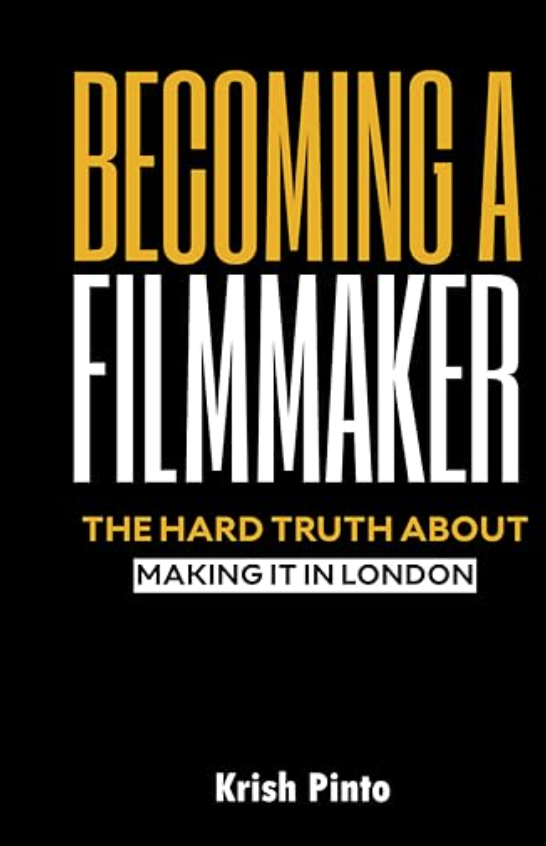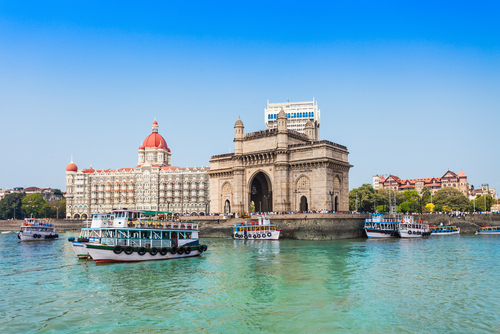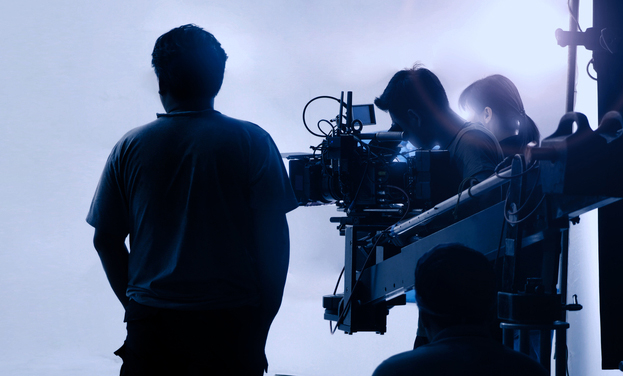In an age of productivity hacks and polished social media narratives, Krish Pinto’s debut book, “Becoming a Filmmaker”, stands apart.
Despite the title, it isn’t a how-to guide for aspiring directors; it’s a work of social commentary, charting what it means to build a creative life from scratch in a city that demands credentials, clarity, and capital.

At its core, it’s a writer’s book; layered, insightful, and unflinching. It explores what art truly costs: emotionally, financially, and spiritually. Pinto offers a rare, humane perspective on creative survival in the modern world, grounded in lived experience and sharpened by research and observation.
Drawing from interviews, fieldwork, and cultural analysis, he paints a broader picture of the UK’s creative landscape; from the illusion of accessibility promised by the internet to the false glamour of “grind culture.” Pinto writes with nuance about the structural challenges facing those without privilege or connections.
“Becoming a Filmmaker” reads like a field guide for emerging writers and creatives who don’t see themselves reflected in mainstream narratives. It maps the emotional terrain of reinvention from the guilt of abandoning stability to the shame of being unseen while maintaining a tone that is both generous and steady.
Rather than offering career triumphs, the book opens with isolation. The cultural dislocation of moving from Bombay to London is laid bare without sensationalism. Pinto reflects on his discomfort among confident peers, the expectations from home, and the quiet shame of questioning whether one’s dreams are delusions.

Still, the book is far from demoralising. If anything, it’s quietly hopeful, refusing fantasy in favour of persistence. Hope, for Pinto, isn’t about manifesting success, but simply about waking up and showing up again.
What elevates the memoir is its multifaceted insight into the UK’s creative sector. Pinto examines housing insecurity, unpaid labour, and the way visibility is often mistaken for viability. He doesn’t shy away from technological change either. In a chapter on AI, he offers a pragmatic view of automation’s impact on young creatives, advocating adaptability to the rapid advancements that are bound to reinvent the industry.
The book questions the very premise of a fixed formula for success. It gives space to
self-doubt, contradiction, and uncertainty; emotional truths that define the writer’s path. For Pinto, storytelling is not an aftereffect of life but the method of making sense of it.
Though anchored in the media world, “Becoming a Filmmaker” speaks to anyone trying to find a voice when the odds aren’t in their favour. For policymakers and cultural thinkers, it’s a textured case study on how class, immigration, and ambition intersect in Britain’s creative economy. For writers, it offers both language and validation. For readers, it delivers something increasingly rare: honesty without spectacle.
“I believed the hardest part would be getting a job,” Pinto writes, “but the actual challenge was explaining to the ones I loved why I was doing any of this at all.”
That kind of emotional clarity places him not just as a storyteller, but as a mirror for anyone who’s dared to go off-script.
In a culture obsessed with quick wins, “Becoming a Filmmaker” resists tidy resolutions. It’s not a story of success, but a record of perseverance. It’s about the act of creating before the world calls you a creator, and the quiet defiance of staying the course with no guarantee of reward.
For young artists, immigrants, and working-class creatives seeking space in industries still shaped by pedigree, Pinto’s voice is urgent and necessary. He writes without ego or agenda, only with the belief that the life of the artist, for all its brutality, is still worth the gamble.
In choosing to tell this story, this book doesn’t just document survival – it honors it.





